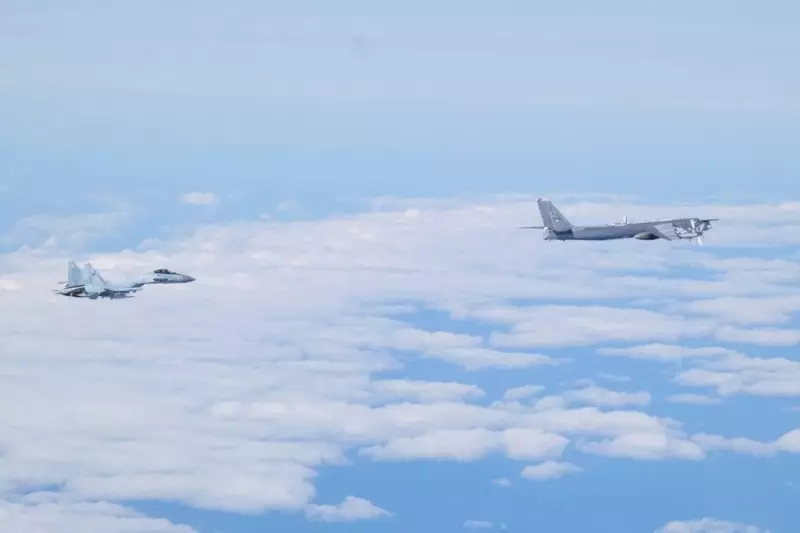
In a significant military escalation that has raised international concern, Russia has deployed two of its formidable Tu-95MS strategic bombers over the Sea of Japan. The long-range aircraft, capable of carrying nuclear weapons, conducted scheduled patrols in international airspace in what Moscow describes as routine operations.
Strategic Power Projection
The Russian Ministry of Defence confirmed that the nuclear-capable bombers operated for approximately seven hours under fighter jet escort. According to official statements, the mission followed all necessary protocols and adhered to international airspace regulations.
This deployment comes at a time of heightened geopolitical tensions, particularly following Russia's ongoing military operations in Ukraine and increasing friction with Western nations. The Sea of Japan region has become a focal point for military activity, with multiple nations including the United States, Japan, and South Korea conducting joint exercises in recent months.
Regional Security Implications
Military analysts note that such deployments serve multiple purposes for Moscow:
- Demonstrating Russia's continued global military reach despite economic sanctions
- Testing regional defence responses and monitoring capabilities
- Sending a clear message to Western allies about Russia's undiminished capabilities
- Maintaining operational readiness of strategic nuclear delivery systems
The Tu-95MS, known by NATO as the 'Bear-H', remains a cornerstone of Russia's long-range aviation fleet. These turboprop-powered giants can carry cruise missiles capable of striking targets thousands of kilometres away, making them a key component of Russia's nuclear triad.
International Response and Monitoring
Neighbouring countries are closely monitoring the situation, with Japanese and South Korean defence officials maintaining heightened alert levels. Similar Russian bomber patrols in recent years have prompted emergency scrambles by fighter aircraft from multiple nations in the region.
This latest deployment underscores the increasingly complex security dynamics in the Asia-Pacific region, where multiple powers are asserting their military presence amid competing territorial claims and strategic interests.
Defence experts suggest that such patrols are likely to continue as Russia seeks to demonstrate its global power projection capabilities while Western nations maintain pressure through sanctions and military support to Ukraine.





